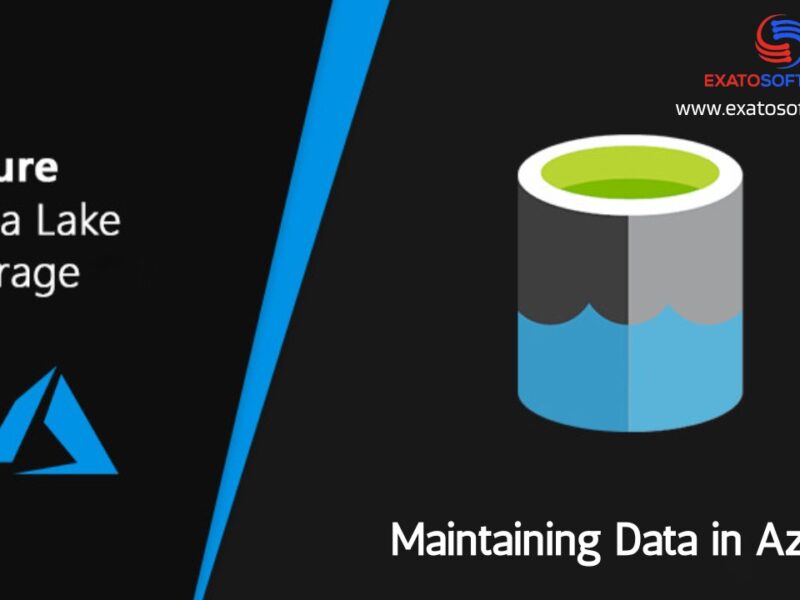Azure provides a range of options for hosting and managing your applications in the context of cloud computing and application deployment. App Services and Container Apps are two popular options. Both have their own benefits and are appropriate for various applications and development philosophies. We will examine the variations and application scenarios for Container App and App Services in Azure in this blog post to assist you in making an informed choice for your application deployment requirements.
Container Apps
Applications or services hosted and deployed within containers on the Azure cloud platform are commonly referred to as “container apps”. These applications and their dependencies can be packaged, distributed, and run in an isolated, lightweight manner using containers.
Container apps in Azure are applications that are packaged and run inside containers using different Azure tools and services that support containerization. For applications running in the cloud, containers have benefits like portability, scalability, and effective resource utilization.
For working with containers and deploying containerized applications, Azure offers several services and tools:
1. Azure Container Instances (ACI): Azure Container Instances is a service that makes it simple and quick to deploy containers without having to deal with virtual machines. It is appropriate for single-container applications with a brief lifespan.
2. Azure Kubernetes Service (AKS): Azure Kubernetes Service, an open-source container orchestration platform, is a managed Kubernetes service that makes it easier to deploy, manage, and scale containerized applications.
3. Azure Container Registry (ACR): A private registry for managing and storing container images, Azure Container Registry. It enables seamless integration of Docker-formatted images with Azure services and workflows while storing them.
4. Azure Functions with Custom Containers: Azure Functions is a serverless compute service that enables you to run your functions inside customized containers. You are now able to use your own container image and run your functions in a unique setting.
5. Azure Logic Apps with Containers: You can build automated workflows using Azure Logic Apps. You can integrate with containerized applications and services by using unique connectors and triggers.
6. App Services in Azure with Containers: App Services in Azure enables simple application deployment and management in containers. With features like auto-scaling, custom domains, and more, you can use Azure App Service to run your own Docker container.
App Services in Azure
Microsoft App Services in Azure is a platform-as-a-service (PaaS) solution that makes it simple and quick for developers to create, launch, and scale web applications and APIs. Without having to manage the underlying infrastructure, it offers a fully managed platform for hosting web applications.
Azure App Service’s salient attributes include:
1. Web Apps: Hosting and scaling web applications created in a variety of frameworks and languages, including .NET, Java, Node.js, Python, PHP, and others.
2. API Apps: Utilize Azure App Service to securely create, host, and use APIs. You can use this feature to make APIs available to internal users or outside partners.
3. Logic Apps: Create automated processes and connect to different SaaS programs and services. You can automate tasks across various systems and create processes that are triggered by events using logic apps.
4. Mobile Apps: Create and host mobile applications using a variety of development frameworks for iOS, Android, and Windows. Data synchronization, push notifications, and authentication are features offered by Azure App Service.
5. Function Apps: A serverless compute service that enables the execution of event-triggered code without the need for manual infrastructure provisioning or management. Code can be run in response to events or HTTP requests using Azure Functions inside of App Service.
6. Containers: Azure App Service supports the execution of containerized applications, enabling you to host your apps in Docker containers.
7. Auto-scaling and Traffic Management: Use features like auto-scaling and traffic routing to optimize performance and cost, and easily scale your applications to handle varying levels of traffic.
8. Authentication and Authorization: To secure access to your applications and APIs, integrate with Azure Active Directory and other identity providers.
9. Custom Domains and SSL: Configure custom domains for your applications and turn on SSL certificates to secure communication.
10. Deployment Slots: Make use of deployment slots to quickly switch between testing and production, create staging environments, and perform testing.
11. Monitoring and Diagnostics: To troubleshoot and improve your application, monitor application performance, set up alerts, and access detailed logs.
So, in a nutshell, the deployment and management of web applications are made easier by Azure App Service, allowing developers to concentrate on creating features and adding value rather than worrying about the supporting infrastructure.
Which one is better? Use cases for Container Apps and App Service.
Azure provides a number of options for hosting and managing applications, including Azure App Service and Azure Container Instances (ACI). Specific requirements and use cases determine whether to use container apps (like ACI) or App Service. Following are a few scenarios in which using container apps (ACI) may be preferable to App Service:
1. Microservices-based architectures: Where each microservice is packaged and deployed as a separate container, are well suited for container apps. These individual microservices can be deployed and managed with ease thanks to ACI, which also offers better scaling and isolation options.
2. Complex Applications with Multiple Dependencies: Containerization is advantageous for applications with numerous complex dependencies or services. Applications and their dependencies are contained within containers, ensuring consistency and portability across various environments.
3. Hybrid Deployments and Edge Computing: ACI is useful for deploying applications at the edge or in hybrid cloud scenarios. You can easily deploy containerized applications close to end-users or in remote locations without managing the underlying infrastructure.
4. Serverless Computing with Containers: ACI provides a serverless container hosting service, allowing you to run containers without managing the underlying infrastructure. This is particularly useful for sporadic workloads or when you don’t want to manage server provisioning and scaling.
5. Quick and Lightweight Application Deployment: ACI is known for its rapid deployment times, making it ideal for scenarios where quick startup and scaling are crucial. If you need to deploy lightweight applications rapidly, container apps can be a great choice.
6. Stateless and Short-lived Workloads: ACI is effective in handling these types of requirements, optimizing costs and resource utilization. If your application requires stateless containers or short-lived workloads that can start and stop quickly.
7. Distributed Data Processing: You can deploy and manage containers to process data in parallel for distributed data processing tasks like data analysis or batch processing using container apps.
8. Custom Networking and Load Balancing Requirements: ACI offers greater configuration flexibility for custom networking and load balancing solutions, making it a better option when you have particular networking requirements that App Service might not be able to meet.
9. Integration with Other Container Orchestration Systems: If you already use or need to integrate with container orchestration systems like Kubernetes, ACI can be a good option for deploying particular services or application components.
In conclusion, container apps (ACI) are perfect for situations requiring a microservices architecture, rapid deployment, running workloads with short lifespans, aiming for edge or hybrid environments, or wishing to utilize serverless capabilities with containers. Based on the unique requirements and architectural considerations of your application, make your choice.
When to use Azure App Services?
Building, deploying, and scaling web applications and APIs is made easier and more integrated with the help of the fully managed Azure App Service platform. Following are a few scenarios in which using Azure App Service rather than Azure Container Instances (ACI) or other container options might be preferable:
1. Traditional Web Applications (TWAs): Azure App Service is a great option for hosting TWAs created in.NET, Java, PHP, Node.js, Python, or Ruby. It offers a ready-to-use environment for these applications and supports a number of frameworks.
2. No Containerization Required: Using Azure App Service makes the deployment and management procedures simpler if your application is not containerized or does not require container orchestration. Without using any intermediaries, you can publish your application directly to App Service.
3. Azure Services Integration: Other Azure services like Azure SQL Database, Azure Functions, Azure Storage, Azure Key Vault, and others are seamlessly integrated with App Service. The development of applications that use these services for databases, caching, authentication, and other purposes is now made simpler.
4. Automatic scaling and load balancing: Automatic scaling based on traffic is provided by Azure App Service, ensuring that your application can handle a high load during peak hours and scale back during slower times. To maintain peak performance, the platform also manages load balancing between instances.
5. Easy Deployment and Continuous Integration/Deployment (CI/CD): Easy deployment is supported by App Service using a number of different techniques, such as direct deployment from Git, Azure DevOps, GitHub Actions, Bitbucket, or Azure Pipelines. This enables efficient CI/CD workflows and makes it simpler to deploy updates and changes.
6. Managed Runtime Environments: By abstracting away the underlying infrastructure, Azure App Service enables you to concentrate on application development. You don’t have to worry about server management because it takes care of the runtime environment, including patching, updates, and scaling.
7. Hosting Environment That Is Secure and Compliant: With integrated security features like SSL, authentication, authorization, and network isolation, Azure App Service offers a secure environment. It is intended to adhere to a number of rules and standards that are specific to the industry.
8. Developers’ Easy-to-Use Platform: Due to its simplicity and usability, Azure App Service is frequently preferred by developers. It removes a lot of the underlying complexity through abstraction, allowing developers to focus on creating and improving their applications.
9. Cost-Efficiency for Standard Web Applications: Due to its streamlined management and simple scalability, Azure App Service can be a cost-effective solution for standard web applications that do not require the additional complexity of containerization.
10. Low Latency and High Performance: Azure App Service allows for geographic scaling, enabling you to deploy your application in various regions to lower latency and boost performance for users around the world. In conclusion, traditional web applications, those that don’t need containerization, those that require seamless integration with Azure services, and those that value simplicity in deployment and scaling with low management requirements are all good candidates for Azure App Service. Choose based on the requirements and development preferences for your application.



